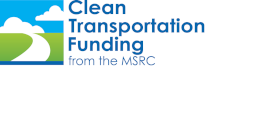 California faces aggressive air quality, climate, and petroleum reduction goals over the coming years and decades. A transformation to zero and near‐zero emission technologies in every sector, including the transit sector, will be necessary to achieve these goals. In the past, California’s transit agencies have been innovators and incubators for advanced technologies like fueling with CNG, installing exhaust retrofits, and some have already been the first adopters of electric and fuel cell buses in their fleets. The ACT regulation would help foster the transition to ZE buses by all transit fleets in the state.
California faces aggressive air quality, climate, and petroleum reduction goals over the coming years and decades. A transformation to zero and near‐zero emission technologies in every sector, including the transit sector, will be necessary to achieve these goals. In the past, California’s transit agencies have been innovators and incubators for advanced technologies like fueling with CNG, installing exhaust retrofits, and some have already been the first adopters of electric and fuel cell buses in their fleets. The ACT regulation would help foster the transition to ZE buses by all transit fleets in the state.
The ACT proposal currently in development by ARB staff would be part of the Fleet Rule for Transit Agencies. The rule would initiate ZE bus purchase requirements beginning in 2018, with the goal of increasing the purchase requirements to transform the statewide fleet to ZE by 2040. The purchase requirements would start low and gradually be ramped up to reflect a declining price curve. Only a portion of new bus purchases would be required to be ZE buses; the rest of the purchases would be required to be the best available control technology (ARB recently certified a low NOx natural gas Cummins engine for buses that has a 90 percent lower NOx emission level compared to current natural gas engines). By doing this, ARB hopes to reach its goal of 100 percent ZE buses in 2040 everywhere possible, and low NOx engines coupled with renewable fuels everywhere else.
Transit buses are viewed as well suited for the early application of ZE technology because they operate on fixed-routes over relatively short distances, perform frequent stop and start driving which enhances opportunities for regenerative braking, and have high idle time and low speeds. Additionally, these buses generally are maintained and fueled at a central base or facility which enables overnight charging and fueling on site.
To develop the ACT rule, staff is engaging in extensive outreach to stakeholders. An ACT workgroup has been assembled that is made up of representatives from bus and engine manufacturers, transit agencies, utilities, fuel companies, labor, environmental non-governmental organizations, air districts and other stakeholders. The workgroup will meet every two months to discuss solutions and barriers to implementing zero and near-zero emission technologies in existing transit fleets and how to leverage continued advancements in accelerating the market for the heavy-duty sector. A Transit Agency Subcommittee, a subset of the larger ACT workgroup, has been formed to discuss the specific issues and concerns raised by transit agencies. They are working on issues such as cost, economic modeling, rule implementation and off-ramps if there are unintended consequences. The next ACT workgroup is slated to meet sometime in early April.
On February 8, ARB held the Advanced Clean Transit Symposium in Sacramento. The symposium featured transit agency representatives, bus and engine manufacturers, and experts on alternative fuels and infrastructure to discuss the state of the existing ZE technology, the challenges, barriers and opportunities, and where these technologies are headed in the near future.
At ARB’s meeting on February 18, staff presented an update on the ACT rule development to the Board. Several stakeholders commented - some were there in support of the rule, but others cautioned that the rule could negatively impact transit operations. The transit agency representatives argued that while the intention of the rule may be good, there are cost and implementation issues that must be accounted for so that transit service is not cut for consumers.
Many of the Board Members seemed to take these comments to heart. They were concerned about the possible unintended consequence of service disruption if the rule was implemented. ARB Board Chairman Mary Nichols said that if the goal is to turn over the transit fleet to make it cleaner, a purchase requirement may not be the best way to reach this goal. The Board asked staff to explore what ARB could do working with the Legislature, Administration and other agencies to get a mix of incentives to promote a greater use of ZE buses. ARB Executive Officer Richard Corey said these could be questions for the ACT workgroup to explore and/or a topic for a workshop, and that staff would examine these issues and report back to the Board. In the meantime, ARB Board members and staff are continuing to meet with transit agencies to see how some are deploying ZE buses in their fleets (see photos of Sunline Transit’s fuel cell bus and Foothill Transit’s electric bus).
ARB will have workshops on the proposed rule in the spring and summer. The Board is slated to consider the rule in late 2016. It is unclear if the latest developments by the Board will result in a need to adjust ARB’s timeline.
To follow the latest developments on the ACT rule, please visit http://www.arb.ca.gov/msprog/bus/actmeetings.htm
